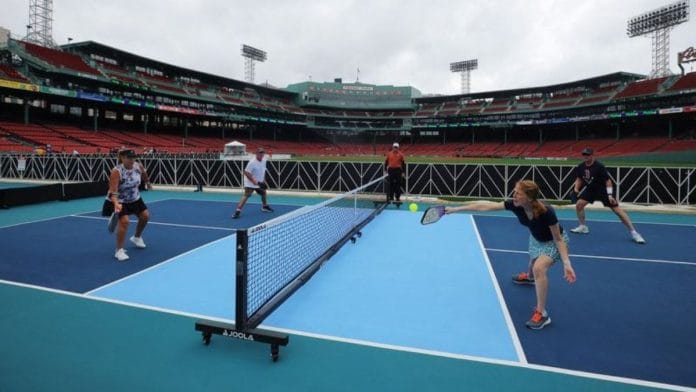New Delhi: Popcorn warming in the microwave, a gunshot’s little brother, water droplets that won’t be stopped — the Western world is trying to make sense of an irritant that is reconfiguring urban life. When the ball hits a pickleball paddle, it makes a popping sound. Innocuous as it may seem, this is steadily becoming a bone of contention in American neighbourhoods, where residents are rallying against it.
The Washington Post is even studying the phenomenon. Its reporters are measuring bodily responses and assessing triggers to arrive at a surprising suggestion: meditation. Unfortunate as it is, urban life comes with an unseemly orchestra. We make peace with deafening traffic, firecrackers unobstructed by laws and governments, and dense neighbourhoods filled with the screaming matches of others. Situated within this — in the Western world, at least — is what has been christened pickleball noise.
The Post report zoomed in on a single neighbourhood, home to Pickleball Noise Relief, a residents’ group formed to fight the problem.
“It made me an angry man, sometimes. I had a shorter fuse because it was harder to concentrate or to focus on things,” a resident told the newspaper. “I hear them even when they’re not playing, sometimes” — a phenomenon so common that Pickleball Noise Relief members call it “phantom pops.”
“It’s also very sporadic,” the resident added. “I’m always anticipating I’m going to be hearing the noise — even when they’re not playing.”
While considered safe, the high–frequency sound is, simply put, annoying. And decibel levels and measurements cannot capture the sheer scope of what is transpiring in these neighbourhoods.
“Two factors — the high pitch of a hard paddle slamming a plastic ball and the erratic, often frantic rhythm of the smacks — also contribute to its uncanny ability to drive bystanders crazy,” says a report in The New York Times. At the 2023 edition of NoiseCon, an American meet-up that seeks to create quiet spaces, the conversation was dominated by Pickleball. “Pickleball is the topic of the year,” said the vice chair for the conference.
Also read: Boycott Spotify is growing. What started it this time?
Smashing job in India
Closer to home, a lot is dividing neighbourhoods, but pickleball noise isn’t one of them. While the sport has definitely picked up steam, with courts cropping up in both tier-1 and tier-2 cities –– even spawning a league of new entrepreneurs –– divisive messages haven’t popped up on RWA WhatsApp groups. Not yet, at least.
For the most part, pickleball courts in India have been built in clearly demarcated sports complexes or refurbished farmhouses. We do not live in suburban America. Instead, we sit ensconced in apartment buildings –– and the game is taking place too far away.
The sport, which has taken the world by storm, is marketed as a comfortable, accessible version of tennis — more endorphins, less effort. It’s the perfect sport for socialising and networking, and for working up just enough of a sweat to look like you’re trying — but not too hard. The pickleball pop pushes this image even further, once again placing the sport front and centre in city life.
Pickleball lovers, some of whom are cognisant of the sound, aren’t planning on giving the game up. The only solution is to redesign the paddle. But this might change how the game is played. So, residents must persevere.
(Edited by Prashant)






